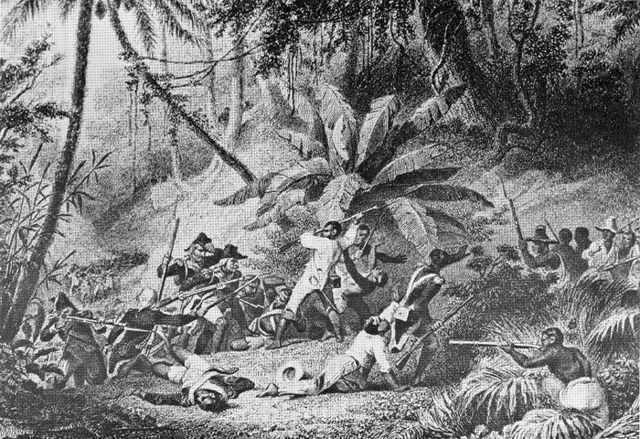Toussaint L’Ouverture was the leader of the Haitian independence movement and a former enslaved person. L’Ouverture fought to end slavery and gain Haiti’s independence from French, European and Spanish influence. Here are five things to know about Toussaint L’Ouverture.
- Francois Toussaint was born into slavery on May 20, 1743, in the French colony of Saint Domingue. He was believed to be the grandson of a king from the West African country of Benin. His family was sold into slavery and sent to the Caribbean where he was allowed to read and write. He also became deeply devoted to the teachings of Catholicism and learned African and Creole herbal-medical techniques.
- At the age of 33, L’Ouverture was granted his freedom from the Breda Plantation where he was born. Despite having his freedom, L’Ouverture continued to live on the plantation and worked in a role that assisted the overseer. While living on the plantation he married a Catholic woman and had children. He was put in charge of running the plantation.
- L’Ouverture did not commit himself to the revolution immediately. When the enslaved people began to rebel in 1791, L’Ouverture was older in age but he was influenced by his religion to participate. He joined Georges Biassou’s rebels who had allied with the Spanish against France and served as a doctor to the troops as well as a soldier. His reputation grew and he was put in command of 600 soldiers (which steadily grew to 4,000). He adopted the French surname L’Ouverture, which means “opening the way.”
- By 1796, L’Ouverture was a leading political and military figure. Under his leadership, the troops were able to capture Santo Domingo. L’Ouverture made himself the de facto ruler of the entire island of Hispaniola. He introduced a constitution that called for the abolition of slavery and he declared himself Governor-General for Life, with nearly absolute powers. L’Ouverture had to face both internal and external political unrest in his established role.
- Toussaint L’Ouverture’s actions helped to lead Haiti to freedom but independence was not officially achieved until after L’Ouverture’s death. In 1802, French ruler Napoleon Bonaparte sent his brother-in-law to capture L’Ouverture and return the island to slavery under French control. Bonaparte’s brother-in-law eventually captured and imprisoned L’Ouverture at Fort de Joux where he died in France.
